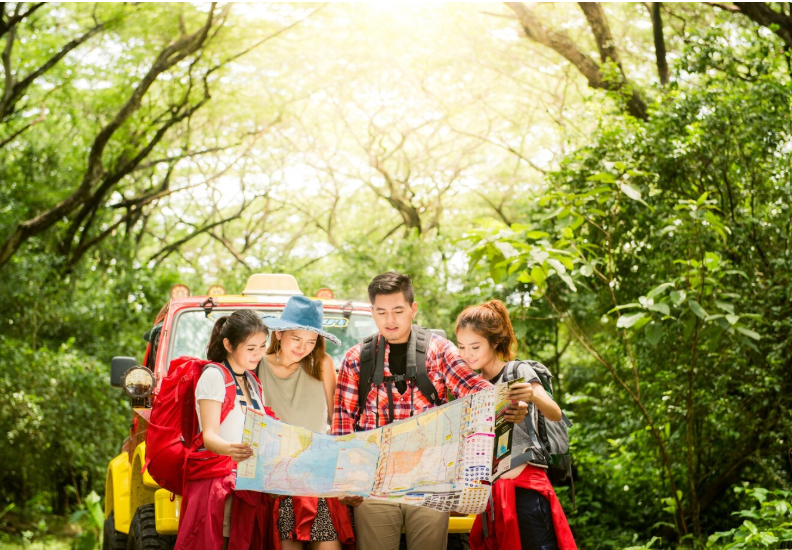Cultural Immersion Through Travel: Learning Beyond Landmarks
Travel is often associated with iconic landmarks, popular tourist destinations, and curated photo opportunities. While these are undoubtedly part of the experience, the true essence of travel lies in immersion—stepping beyond the guidebooks to experience the world through the eyes of those who live there. Cultural immersion doesn’t just broaden your travel itinerary; it transforms your perspective, deepens empathy, and fosters a genuine connection with diverse communities.
Going Beyond the Tourist Experience
To truly connect with a destination, one must do more than check off famous sites. Landmarks can tell stories, but it’s the people, traditions, and day-to-day customs that bring those stories to life. A walk through a local market, attending a regional festival, or even taking public transportation can reveal the heartbeat of a place in ways a monument never could.
For example, visiting a Roman piazza or a Parisian café is not just about architecture or ambiance. It’s about observing the rhythm of local life, hearing the language in real-time, and understanding social dynamics. Every gesture, greeting, and culinary tradition holds deeper meaning when viewed through a cultural lens.
Living Like a Local
One of the most effective ways to immerse yourself in another culture is by living like a local. This means choosing accommodations in residential neighborhoods over hotels in tourist zones, eating at family-run restaurants, and shopping where locals shop. Even brief stays can be enriching when approached with curiosity and respect.
Participating in community activities is another gateway to immersion. Whether it’s joining a cooking class in Thailand, volunteering in a rural village in Peru, or attending a soccer match in Spain, engaging in everyday life offers meaningful insight into cultural values and traditions.
The Power of Cultural Exchange
Cultural immersion is a two-way street. While you absorb local customs, you’re also sharing your own background. This mutual exchange fosters cross-cultural understanding and global citizenship. Travelers who approach new cultures with humility and openness often find themselves welcomed with warmth and curiosity.
It’s also important to recognize and respect cultural differences. What may seem unusual or uncomfortable at first—like eating unfamiliar foods or observing religious practices—can be opportunities for growth and learning. Embracing these differences rather than avoiding them is key to a richer travel experience.
Immersive Language Learning
Language is one of the most powerful gateways to culture. Learning even a few phrases in the local language shows respect and can open doors that might otherwise remain closed. It facilitates deeper connections and allows for more meaningful interactions, even in casual conversations.
Traveling with the intent to learn a language adds a new layer to your experience. Immersing yourself in a country where the language is spoken daily provides a practical, real-world classroom that no textbook can replicate. You’ll learn not just vocabulary, but cultural nuance, tone, and humor—elements that are essential for true fluency.
Challenges and Rewards
Cultural immersion isn’t always easy. It requires patience, adaptability, and a willingness to step outside your comfort zone. Miscommunications, cultural misunderstandings, and even homesickness are all part of the journey. But these challenges are also the moments from which we learn the most.
The reward is a more profound understanding of the world and your place in it. Immersive travel experiences often leave a lasting impact, shaping your worldview and influencing how you relate to others long after you’ve returned home.
Learning New Languages as an Expat: Strategies for Quick Success
For those transitioning from traveler to expat, language acquisition becomes even more crucial. Here are a few strategies to help speed up the process:
- Immerse Daily: Make the local language part of your routine—listen to local radio, watch TV shows, and read newspapers.
- Take Formal Classes: Structured learning can give you the foundation you need to advance quickly.
- Use Language Apps: Duolingo, Babbel, or Rosetta Stone are excellent tools to reinforce vocabulary and grammar.
- Practice with Locals: Engage in conversations, even if your skills are basic. Most locals appreciate the effort and will help you learn.
- Be Patient with Yourself: Language learning takes time. Celebrate progress rather than perfection.
Mastering a new language not only makes daily life smoother, it also enriches your cultural experience by allowing you to understand local humor, emotion, and context—things that are often lost in translation.
Stay Connected for More Travel and Lifestyle Inspiration. For more insights into travel, culture, and lifestyle tips, follow me on @salvadorordorica. If you’re seeking professional translation and localization services to enhance your global ventures, visit The Spanish Group — your trusted partner in bridging cultures worldwide.



